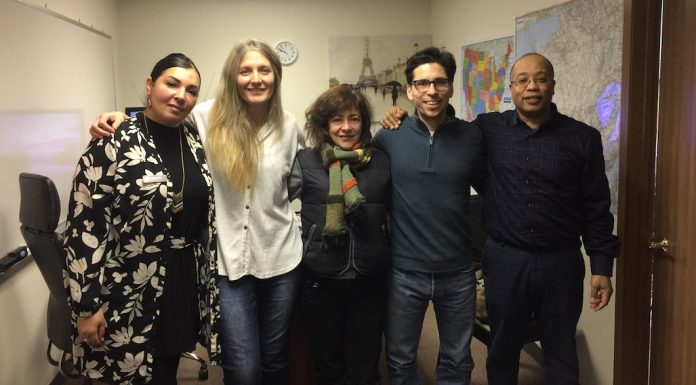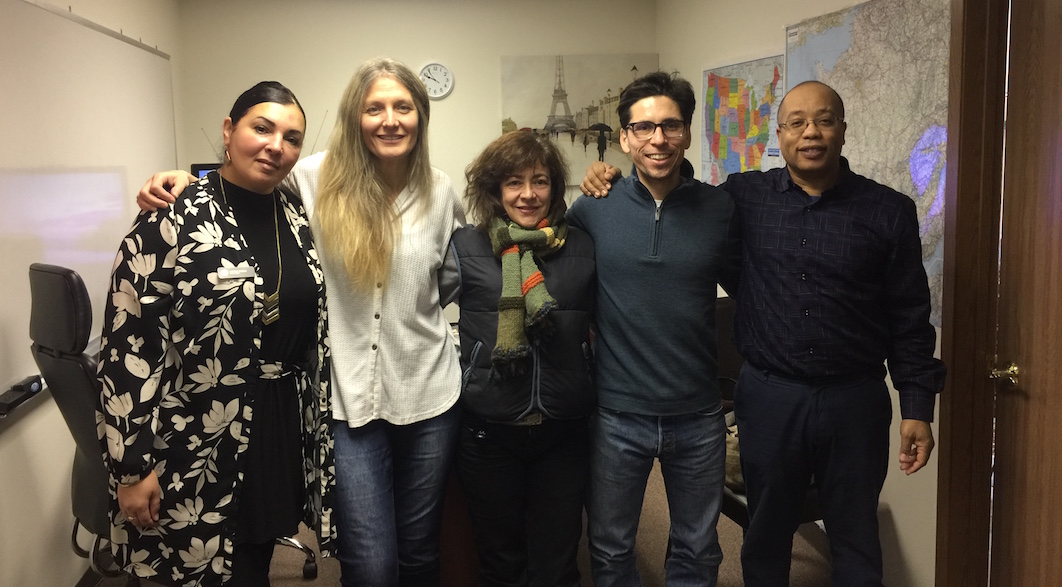
"There is no pressure, it is an honor to vote first." Linda Sabic is one of the French-Americans who will participate, Monday, February 3, in the Democratic caucuses of Iowa, the first step in the designation of the opponent of Donald Trump as President of 2020. Real estate agent installed since 2001 in Des Moines, the capital of this rural state of 3 million inhabitants in the heart of the United States, the Frenchwoman admits not knowing who she will vote for. But she is sure of one thing: she will not take her decision lightly. After all, the rest of the country is watching it. "There is a sense of responsibility. I take it very seriously".
Although Iowa sent few delegates (49) to the July convention where the Democratic Party candidate will be formally inducted, the state plays an important role in the nomination process. A victory in Iowa, even a relative one, allows to garner a surplus of donations and credibility before the rest of the primaries and caucuses in other American states, starting with New Hampshire as of February 11. Note that the Republicans of Iowa will hold their caucus the same day, but there is little doubt about their outcome.
"Saturation"
For months, residents of Des Moines and other cities in the state have been bombarded with text messages, calls, commercials, letters sent by various campaigns. Not to mention the visits of volunteers going door to door. For the four French citizens of the city gathered to talk about the caucuses on the premises of the UFE Iowa (Union of French Abroad) in Des Moines, Friday, by the president of the association Bruno Eliazord, it is too much. "It’s like a broken record. We're getting tired of it“, Says Corinne Zaragoza, a former medical researcher who has just published books of fantastic literature.
"It's saturation, adds Nicolas Percheron, a Franco-American who has lived in Des Moines for 19 years. It's starting to get long. With the money that goes into TV and radio commercials, you get a layer of it. In addition, they are negative ads. The candidates criticize each other and do not talk about what they would like to do to improve the state or the country". This father of two understands the criticisms of caucuses, including the public nature of the ballot. In caucuses, voters are physically distributed in the polling place (a gymnasium, a cafeteria or even in a house) according to their candidates, under the gaze of other voters. Despite everything, this former restaurant manager converted to insurance will make the trip. "For me it’s a civic right and duty. Those who can vote must go. Iowa gives a good idea of what can happen in a few months during the general election. It sets the tone".
Nathalie Girod, who belongs to Iowa’s largest group of voters, the independents, will not go to caucus on February 3 because she cannot sort through the candidates who run. "All I know is that I don't want Trump anymore. I’m going to vote in November for the presidential election“, Specifies this French designer with three years of Des Moines on the clock.
In any case, our French people are happy to see their adopted city in the spotlight, even if it will not last. Des Moines, as elsewhere in “flyover country” (nickname given to the central area of the country that the wealthy inhabitants of the big coastal cities fly over without stopping) is experiencing a demographic boom thanks to low property prices, in particular its western districts (Urbandale, Waukee, West Des Moines…). "It is no longer the city of twenty years ago. There are a lot of Hispanic, African and European communities now“, Says Linda Sabic. "There are a lot of opportunities here and a good quality of life. The people of Iowa are kind, honest. “Iowa Nice” is not a legend“, Adds Nicolas Percheron.
Even if the UFE, with its images of Paris on the wall, its TV connected to France 24 (and its bottles of chilled wine) is one of the only bridges they have left with France, our French people from Des Moines can count on the other inhabitants of the city to remind them of where they come from. The name “Des Moines” is the fruit of the meeting between French explorers Jacques Marquette and Louis Joliet who crossed the Mississippi valley and the local tribe of Moingona in the 17th century. "We are often asked how we pronounce Des Moines, has fun Corinne Zaragoza. And when we look at the flag of Iowa (a tricolor banner similar to the French one with an eagle in the middle, editor's note), one has the impression of seeing that of France!".








